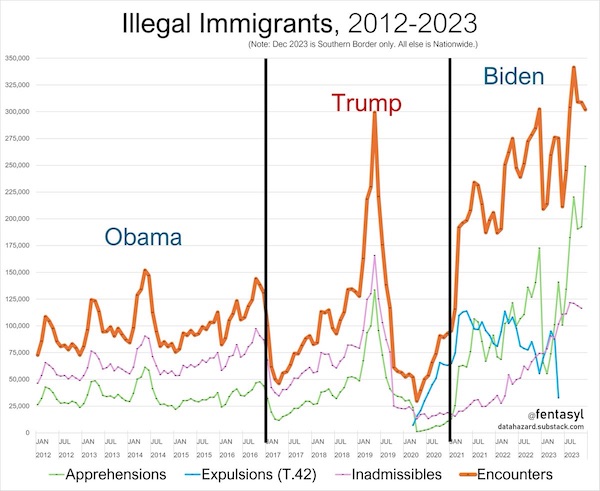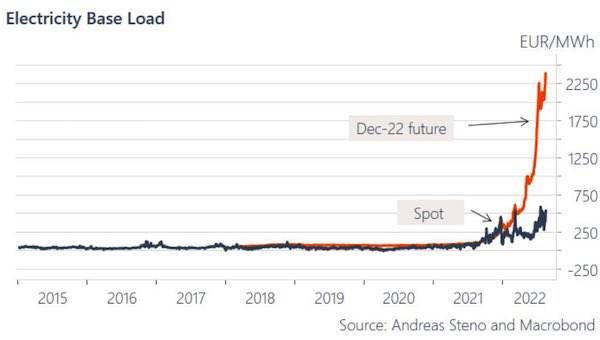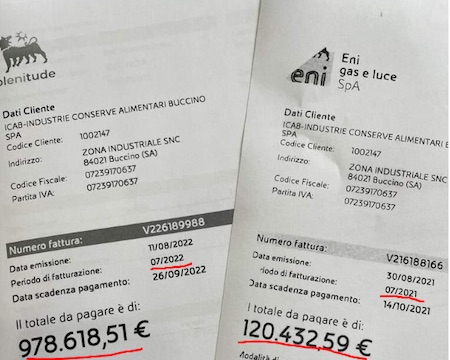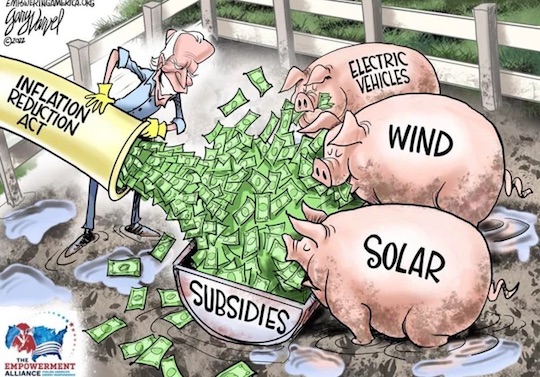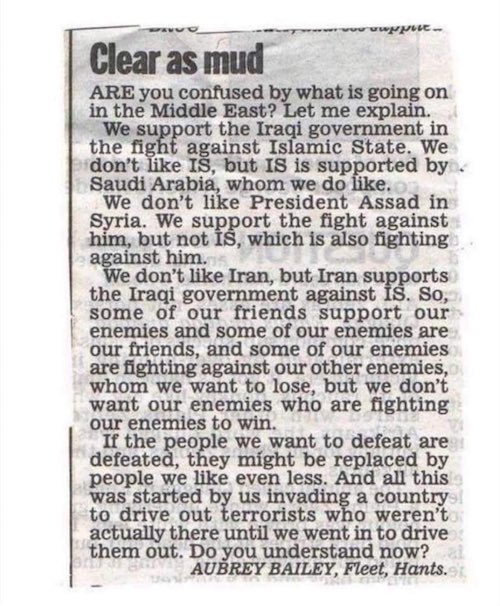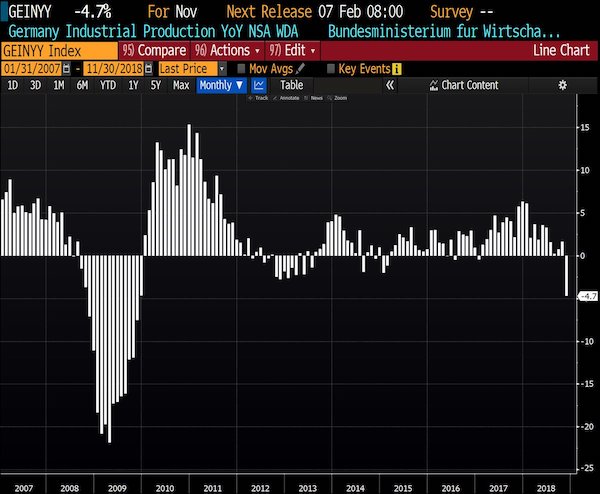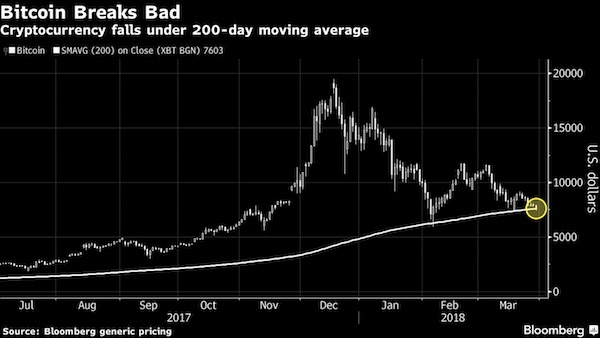
Salvador Dali The Madonna of Port Lligat 1950

First picture I’ve seen since he was released. That’s a lot of happiness.
Family photo! pic.twitter.com/UlWLsW5MPL
— Stella Assange (@Stella_Assange) July 22, 2024

Cheatle
This is hands-down the most powerful and relevant exchange of the entire hearing from @RepPatFallon
This alone is enough to warrant firing Kim Cheatle, charging Kim Cheatle, and jailing Kim Cheatle.
The first of many who need to be held to account for the attempted… pic.twitter.com/sxmKfZIyzZ
— Viva Frei (@thevivafrei) July 22, 2024
https://twitter.com/i/status/1815454670367699258
NEW: Room starts cracking up after USSS director Kim Cheatle fumbles her words & claims she has a "timeline that does not have specifics" of the day Trump was nearly assas*inated.
MTG: "How did [Crooks] fly a drone over the rally area?"
Cheatle: "I would have to check the… pic.twitter.com/14ECYzKa2Z
— Collin Rugg (@CollinRugg) July 22, 2024



Ron Johnson https://twitter.com/i/status/1815055060906266868

Vivek https://twitter.com/i/status/1815107278258712725

Tulsi




“America cannot be unified. Trump’s statement that he is going to unify America is fatuous. I expect that there will be more attempts on Trump’s life.”
• Does America Have a Future? (Paul Craig Roberts)
As readers know, I expected Biden to be moved aside. I wondered why the Democrats were waiting so long. They might have been waiting to see if the planned assassination of Trump succeeded. Biden is an issue because he cannot win or come close enough to winning for the Democrats to be able to steal the election as they did in 2020. As the assassination failed, the Democrats need a more viable candidate, one the media can hype as one who can run a close race and win. Fake polls will be published that show the Democrat to be leading Trump. This allows the Democrats to steal the election if necessary. As there is not sufficient time for the Democrats to create a winning persona for a new presidential candidate, they need someone with name recognition and existing support, such as Hillary Clinton. Hillary and Obama are the main political figures in the Democrat Party. If Hillary has Obama’s support, she is likely to be the candidate. Kamala Harris is not regarded as having any better chance than Biden.
I do not think the Democrats can come up with a candidate who can defeat Trump. Democrats in the swing states have legalized the theft mechanisms they used in 2020 and 2022. If the race can be presented as close, the Democrats can steal the election, but they cannot win it. Donald Trump’s presidency was disrupted by the ruling elite/deep state because he presented as a threat to them. When he said he intended to normalize relations with Russia Trump threatened the budget and power of the military/security complex, which needs Russia as an enemy. The director of the CIA, John Brennan, declared Trump to be a “traitor to America.” This set the ruling establishment working against Trump. There was Russia-gate, two impeachments, porn star-gate, documents-gate, insurrection-gate and then 4 criminal indictments and several civil indictments. The Democrats acting for the Deep State believed they could get rid of Trump in these ways.
When these attempts failed, they turned to assassination. Acoustic evidence of the shootings make it completely clear that there were more than one shooter. Crooks was the patsy. Trump survived the assassination, because he turned his head. The attempted assassination has given Trump a large sympathy vote. He cannot be honestly defeated. The real question is: Will the deep state get away with its assassination attempt and will it attempt another? In order to keep the public’s focus off the attempted assassination. The Secret Service is being blamed for withholding sufficient resources necessary to protect Trump. This focuses attention away from a plot to kill Trump and places it on the sufficiency of the Secret Service’s budget and the appropriateness of its “diversity, equity, and inclusion” personnel policy.
The Republicans are likely to agree to sweep the intent issue under the rug in order to “protect America’s reputation.” It wouldn’t do to showcase the US as a country where presidents and would-be presidents are shot down by the opposition. What America faces is a population more divided than in 1861. One party, the Democrats, has as an agenda the normalization and legitimization of sexual perversion. The other party, the Republicans, are protective of traditional sexual morality. One party, the Democrats, has an agenda of open borders and a Tower of Babel instead of a nation. The other party, the Republicans, desire an ethnic-based nation. These agendas cannot be reconciled. To put it bluntly, America cannot be unified. Trump’s statement that he is going to unify America is fatuous. I expect that there will be more attempts on Trump’s life.
Read more …

“..Harris had the lowest approval rating of any first-term US vice president since Dan Quayle..”
• Kamala Harris’ Second Presidential Campaign to Fail – Just Like Her First (Sp.)
With Joe Biden endorsing Kamala Harris as the Democratic nominee after his decision to exit the presidential race on Sunday, the first female US vice president “will likely have to answer questions” about her last botched campaign for the top job, the Washington Post has reported. Harris, who has said that she intends to “earn and win” the nomination, is now facing “an abrupt launch” of her surprise second presidential campaign, the success of which will depend on how she resolves the problems that hampered the first campaign, according to the newspaper. In this vein, the Washington Post cited an unnamed Democratic strategist as saying that Harris previously failed to live up to Democrats’ expectations because “she ran a terrible campaign (which kicked off in January 2019).”
Her efforts, which notably collapsed before a single ballot was cast, were disrupted by “declining cash, an inability to articulate a cohesive campaign message, and a steady patter of departing staffers”, the newspaper pointed out. The report comes after Harris’ approval numbers dropped, following Biden’s “catastrophic” debate against former US President Donald Trump on June 27. According to FiveThirtyEight’s average, the vice president’s disapproval rating stood at 51.2 % on July 5, compared to 49.4 % on June 27. Last year’s polls showed that Harris had the lowest approval rating of any first-term US vice president since Dan Quayle in the early 1990s. The surveys indicated that the 49th vice president’s approval rating dropped from 41.7% to 36.3% in early 2023. Previous polls revealed that Harris, who has been repeatedly criticized for turning a blind eye to the US migration crisis, and keeping mum on America’s chaotic withdrawal from Afghanistan, is “not qualified” or “not at all qualified” to be US president.
Read more …

Not everyone agrees…
• Kamala Harris Cannot Use Biden’s Election Campaign Funds – WaPo (RT)
Vice President Kamala Harris, who has been tapped by US President Joe Biden to run in his place, has no authority to control funds raised by his election campaign, the Washington Post (WaPo) has reported, citing finance lawyers for the Republican Party (GOP). An attempt to use the money could result in a lawsuit, the publication added. After announcing his withdrawal from the US presidential election race on Sunday, Biden endorsed Harris, his running mate, to replace him on the ballot. His campaign committee quickly filed paperwork with the Federal Election Commission (FEC) for the campaign to be re-designated as “Harris for President.” According to WaPo, Democratic lawyers and operatives have argued that installing Harris as the nominee was the easiest solution for the party, as her name is already on the paperwork, and the money was raised for Harris, alongside Biden, meaning that she is allowed to use it. As of the end of June, the Biden campaign reported having $95 million in its coffers.
Another option under the campaign legislation would be to refund the money to donors. Any new presidential candidates would have to launch their fundraising campaigns from scratch, as just over three months are left until the election. According to GOP-aligned campaign finance lawyers, the Biden campaign does not have the legal authority to appoint Harris and give her control of the funds. The step “is all but certain” to be challenged before the FEC or in court, they argue, as cited by WaPo. Prominent GOP campaign finance lawyer Charlie Spies told the publication that both Biden and Harris would have to have been officially nominated by the Democratic Party at its convention next month before any kind of funding handoff could occur. Only in that situation, campaign finance law allows a vice-presidential nominee to take control of the campaign’s depository if the presidential nominee withdraws, he noted.
”Biden can’t transfer his money to Harris because it was raised under his own name, and there is no legal mechanism for it to have been raised jointly with Harris before they were their party’s nominees,” Spies said. ”A campaign cannot keep money for an election the candidate isn’t running in.” Craig Engle, a former lawyer for an FEC commission told CNN. The six-member FEC panel that would rule on such matters has long been evenly split between Republicans and Democrats, WaPo notes. The partisan divide means the commissioners could deadlock on the issue, potentially leading to litigation in court. According to Sean Cooksey, a Republican who holds the post of FEC chairman, the situation is unprecedented under current campaign finance law, and it “raises a host of open questions about whether it is legal, what limits apply and what contributors’ rights are.”
Read more …

She doesn’t need Biden’s funds anymore.
• Kamala Harris Breaks Fundraising Record (RT)
US Vice President Kamala Harris has received $81 million in contributions in the first 24 hours since Joe Biden withdrew from the 2024 presidential race and endorsed her candidacy. According to the campaign, it has received more than 888,000 contributions from “grassroots donors,” 60% of whom have donated for the first time during the 2024 election cycle. “The historic outpouring of support for Vice President Harris represents exactly the kind of grassroots energy and enthusiasm that wins elections,” campaign spokesperson Kevin Munoz said. Separately, Future Forward – the largest Democratic political action committee in the US – told Politico magazine on Monday that it has received $150 million in new commitments from major donors in the last 24 hours. Biden ended his reelection campaign and endorsed Harris on Sunday, following weeks of calls from Democratic politicians, donors and journalists for him to leave the race due to growing concerns over his mental fitness and ability to defeat former President Donald Trump in November.
Although Biden had repeatedly refused to abandon his reelection campaign, he eventually conceded, arguing that the move was “in the best interest of my party and the country.” According to CNN, Harris has since been endorsed by more than 40 Democratic senators and nearly 100 House members, as well as several governors, including Gavin Newsom of California, J.B. Pritzker of Illinois, and Josh Shapiro of Pennsylvania. The Democrats will finally decide on the nominee during their convention in August. Last week, Republicans nominated Trump as their candidate for the president and J.D. Vance, a senator from Ohio, as his running mate. Trump survived an assassination attempt during a rally in Pennsylvania on July 13; the gunman’s bullet grazed his right ear. The FBI have said that they have not yet identified a clear motive; the shooter was neutralized during the altercation.
Read more …

“The American people have already rejected Kamala Harris when she ran for president last time — she won zero delegates and the least number of votes. She is deeply unpopular and for good reason.”
• Democratic Voters May Get Angry at Party After Biden’s Dropout (Sp.)
The American voters were betrayed by the Democratic Party when they were told that US President Joe Biden was fine, while the party itself and the media knew it, and that may suppress the enthusiasm of the Democratic Party voters, Daniel McAdams, the Director of the Ron Paul Institute for Peace and Prosperity told Sputnik. “What does this mean for the millions of people who already voted for Biden? What is the Democratic Party going to tell them after they had been lied to throughout the entire primary process?,” McAdams said. “They were told that Biden is fine so they voted for him. But the claim was fraudulent and the Democratic Party officials and media knew it. They were betrayed by their own party. That may well suppress enthusiasm among Democratic Party voters.” US President Joe Biden said on Sunday that he would withdraw from the presidential race. He endorsed Vice President Kamala Harris to be the Democratic Party’s nominee for US president.
“I am not surprised at the news, as the media has been pushing this narrative since the late June presidential debate,” McAdams said. “Before that they had been pushing the false narrative for three years that Biden was just fine and that anyone who questioned it was just a right wing extremist. Anyone with a brain could notice that Biden was having problems with his brain.” McAdams went on to say that right now, especially after the assassination attempt, former President Donald Trump’s chances of winning are growing by the day. “There is no Democrat candidate waiting in the wings who can hope to gain the necessary traction in the short period between now and the election,” he said. “The American people have already rejected Kamala Harris when she ran for president last time — she won zero delegates and the least number of votes. She is deeply unpopular and for good reason.”
“Likewise Hillary Clinton, who has been resoundingly rejected by voters and remains deeply unpopular with Americans,” McAdams added. “California’s Gavin Newsom has destroyed the state and his candidacy would play into Trump’s hands. Who else? One wag suggested the Democrats should nominate Mitt Romney. Good luck with that.” McAdams concluded by saying that the US electoral process is in a state of “total chaos.” “Chaos favors the ambitious and avaricious. Look for bad things to happen,” he said. US House Speaker Mike Johnson on Sunday called on President Joe Biden to resign after he announced withdrawal from the presidential race. US presidential candidate Donald Trump in response to Biden’s decision said his former rival was never fit to serve as US president, adding that the country has suffered greatly because of his presidency.
Read more …

“..a House investigation into Biden’s continuing capacity to serve in an office that he no longer believes he can run to occupy after January 2025.”
• How Biden’s Withdrawal Could Trigger a 25th Amendment Fight (Turley)
President Joe Biden’s decision to withdraw as the Democratic Party’s nominee solved an immediate problem for his party. Biden has plummeted in the polls as the vast majority of voters concluded that he is too diminished by age to serve another term. Yet, it has now created several new problems, including the obvious problem of a president who is viewed as incapable of running for an office that he continues to hold. The Democratic Party essentially created its own political version of the 25th Amendment in forcing Biden off the ticket. This decision was about as voluntary as leaving a building by way of a window on the 46th floor. That is particularly the case when you are thrown out of the window by your closest friends. The unseemly image of succession by defenestration will soon be whitewashed by a media that will praise Biden after weeks of declaring him incompetent and enfeebled.
That, however, leaves the lingering question after the fall. How can Biden remain in office when he is incapable of running for the office? Biden is notably vague about the reason for his withdrawal after maintaining for days that he will be the party’s nominee. He simply says that it is in the best interests of the country. The Democratic establishment has two equally unappealing options. First, it could argue that Biden was withdrawing out of recognition that he is no longer politically viable. But that makes a mockery out of the democratic process. Millions of people went through the primary elections to select him as their nominee. Now he would be set aside and replaced by a vote of the party establishment like a shift in the Russian politburo. Second, it could admit that Biden was, as stated for weeks in the media and by figures like Special Counsel Robert Hur, greatly diminished both mentally and physically. However, that makes this withdrawal an admission that could trigger a fight under the 25th Amendment.
The development could create a new constitutional controversy. The 25th Amendment was written with largely physical disabilities in mind. If a president is comatose, the incapacity is obvious and Section 4 allows the vice president and a majority of the Cabinet to sign a declaration to Congress that a president is incapable of holding office. However, Harris is eager to avoid the image of Brutus in the dispatching of the president. To support such a declaration would risk Biden proclaiming “Et tu, Kamala?” to the nation. The key to succession by defenestration is not to be seen as the hand that pushes the president out the window. Politics follows the same rules as the mafia for capo di tutti i capi: Kill a don, never be a don. While sometimes honored in the breach in the mob, it is hardly an auspicious path for a politician.
There is, however, another intriguing possibility. Section 4 provides that a president’s fitness can be put before Congress when the “Vice President and a majority of either the principal officers of the executive departments or such other body as Congress may by law provide.” Previously Democrats have cited that language to suggest that they could create their own body to force former President Donald Trump out of office. Indeed, Rep. Jaime Raskin (D-Md.) sponsored legislation called the Oversight Commission on Presidential Capacity Act to create a commission empowered to examine a president to Congress on the president’s capacity. It would circumvent the necessity of getting Harris to be the primary hand that dispatched a president. The question is whether Congress will now make this decision to warrant an investigation or even a Raskin-like bill.
This is different than President Lyndon Johnson’s decision on March 31, 1968, that “I shall not seek, and I will not accept the nomination of my party for another term as your president.” That was before any primaries. In this case, Biden won a primary in which the Democratic Party obstructed anyone who would challenge him and barred any debate. Millions voted for him, and tens of millions of dollars were contributed to his campaign. He is now withdrawing weeks before accepting the nomination. That unprecedented decision alone would warrant a House investigation into Biden’s continuing capacity to serve in an office that he no longer believes he can run to occupy after January 2025.
Read more …

He wants back in.
• RFK Jr. Accuses US Democrats of ‘Rigging’ Nomination (RT)
Independent presidential candidate Robert F. Kennedy Jr. has accused the Democratic Party of “anointing a candidate hand-picked by elites” and urged them to return to an “open process” of selecting a nominee for the upcoming November elections—while also claiming that only he can beat former President Trump. Following US President Biden’s announcement on Sunday that he would not be seeking re-election, RFK Jr. commended him “for stepping down,” saying that Biden’s “infirmities were evident to any unbiased observer from the beginning.” “It was this progressive deterioration—and his abandonment of Democratic Party principles—that prompted me to enter the race and ensure American voters had a viable, vigorous alternative to Donald Trump,” RFK Jr., who initially entered the presidential race as a Democrat but dropped out after being blocked by the party from challenging Biden in the primaries, said in a post on X (formerly Twitter) on Sunday.
He then slammed the Democratic National Committee (DNC) for “rigging” the nomination process by getting “a monumentally unpopular vice president to step into President Biden’s shoes,” arguing that “it’s the easiest way to hold onto the money,” referring to campaign finance rules that make transferring funds from the incumbent president to his running mate possible during the election cycle. “I call on the Democratic Party to return to its traditional commitment to democracy and exemplify it with an open process. Instead of anointing a candidate hand-picked by DNC elites, the party should use neutral polling to identify the candidate who can best beat Donald Trump. The delegates should then select a nominee based on this information,” RFK Jr. concluded. Later in the day, he called a press conference at his family home in Hyannis Port, Massachusetts, where he criticized the DNC for trying to hide Biden’s health issues, claiming that it had been done to prevent any other candidate from competing with the incumbent “in a way that would expose his deficiencies.”
Kennedy also took a jab at both Republican nominee Donald Trump and Vice President Kamala Harris, who was endorsed by President Biden for the Democratic Party nomination, saying that they conceal “the real purpose of their objective” and represent “corporate interests rather than the interests of the American public.” RFK Jr. then stated that he would be willing to accept the Democratic nomination if it was offered to him, arguing that he is “the only presidential candidate who can beat Donald Trump.” “I believe at this point it’s a two-man race or two-person race. Let me put it that way. And, you know, I’m in the best position to win,” he stated. According to various polls, Kennedy currently stands to win around 10% of the national vote. His campaign claims to be pro-choice and pro-environment and has condemned “corporate capture,” the affordability crisis, and “forever wars.”
Read more …

“Cheatle is correct that the Secret Service failed. It failed to assassinate Trump.”
• Secret Service’s Failure-to-Protect Blamed on “Operational Failure” (PCR)
Secret Service Director admits “significant operational failure.” No Deep State plot. Just an operational failure. The official narrative has taken the form I said it would. The issue for the Republicans is Secret Service Director Kimberly Cheatle’s resignation and not whether there was a Deep State attempt on Trump’s life. For example, Rep. James Comer, chairman of the House Oversight Committee, defined the issue as the Secret Service “lacks the proper management.” The fight over whether Cheatle’s “significant operational failure” is consistent with her remaining in command will exhaust the subject of the assassination. The acoustic evidence showing more than one shooter will not be reported and carefully investigated. The issue of a Democrat/Deep State plot will not be raised. Cheatle is correct that the Secret Service failed. It failed to assassinate Trump.
As the Secret Service now operates in the failure-to-protect mode, there will be another try. An established excuse is in place. Prior to the next attempt, watch for media articles about how difficult it is to protect presidents and presidential candidates. “An almost impossible job,” we will be told, the proof being success for most attempts. Trump survived not due to the Secret Service but to turning his head at precisely the right moment to escape death. Liberals will say the Second Amendment enables mass shootings and attempts on presidents and turn the issue into one of gun control. Or perhaps Trump has finally got the message and will pull in his horns. Maybe he already has. Unifying America is taking the place of fight, fight, fight. Unifying America means giving in.
Read more …

Pretty convincing.
• Acoustic Evidence Proves More Than One Shooter (Paul Craig Roberts)
I and others have pointed out astonishing voids in the Secret Service’s protection of Trump. The voids are so egregious that they cannot be blamed on incompetence. Scott Ritter says that intent is the only explanation. Now these conclusions are backed by acoustic evidence. The fact that bullets travel faster than sound means that the time between hearing the bullet pass the microphone and then the sound allows the calculation of the distance from which the bullet was fired. The time differences reveal different distances. Therefore the conclusion is unavoidable that there was more than one shooter. Mike Adams walks us through one approximately 30 minute analysis, and Chris Martenson walks us through another 30 minute analysis. Mike Adams concludes that there were 7 shots fired, 5 from the distance of Crooks’ location, and 2 from two different longer distances.
Martenson makes the point that the shot at Trump that hit a man in the upper row was traveling on an upward trajectory, which implies it did not come from the top of the building where Crooks was positioned. The first shots are easy to identify. Some of the following shots are polluted with echos and require careful attention. Both Adams and Martenson provide competent reports. Both say that the analysis requires credentialed independent forensic experts and that the accuracy of the results can be tightened once the calibers of the weapons are known. As I said, let’s hope the bullets were collected by honest and trustworthy authorities. Keep in mind that expert acoustic analysis of Robert F. Kennedy’s assassination definitely showed two different caliber of weapons fired. There is no doubt about this, but the official story remains “lone gunman.”
The American whore media will brand the factual analysis a “conspiracy theory” and will endorse the official narrative as the truth. However, at this point the FBI, CIA, Homeland Security, NSA and presstitute media have zero credibility. No one should believe a word they say. Here are the videos:
https://www.brighteon.com/a2ec2cff-0d92-4870-9629-e1fa9eb3fb09
My jaw is on the floor
This PhD did a scientific analysis of all bullet audio signatures from the Trump assassination footage
CONCLUSION: Raw Audio evidence proves there were *at least* two shooters firing different weapons in two locations to kill Trumppic.twitter.com/SLTpCrjAd9
— Benny Johnson (@bennyjohnson) July 19, 2024
In addition to the security failures and acoustic evidence, there is the absence of a Secret Service camera drone. The only reason not to have camera coverage is that it would have made Crooks obvious and other shooters obvious. The only way the Democrats or the Deep State operating through the Democrats can get away with their attempted assassination of Donald Trump is for the Republicans to do nothing on the grounds that it would be divisive or too embarrassing to the US to admit a government plot against Trump. The Rinos will argue that the plot has to be covered up in order to save America’s reputation. Trump will be told he has to unify the country, not divide it by holding his would be murderers accountable. No one will explain how good can be united with evil.
Read more …

“..the Clinton entourage claims that Hillary and Kamala have a strong bond..”
• Who Are Kamala Harris’ Apparent Puppeteers? (Sp.)
Alex Soros, the son and heir of the Democratic Party’s longtime donor George Soros, was quick to endorse Harris for president after Joe Biden dropped out. After Alex Soros endorsed Kamala Harris for the presidency on X, Tesla CEO Elon Musk tweeted: “I’d just like to thank Alexander Soros for not keeping everyone in suspense about who the next puppet would be.” Harris has been repeatedly called a part of “cabal”, a “deep state” creature who allegedly advanced her career through nepotism. Influence Watch, a project launched by DC-based think tank Capital Research Center, refers to media criticism of Harris’ affair with then-Speaker of the California Assembly Willie Brown, who reportedly promoted her to top positions in the 1990s.
The watchdog particularly quoted the San Francisco Chronicle that claimed that Harris had long been beholden to Brown, who used to be one of the most powerful politicians in California for almost three decades. “[Harris] is part of a home state Democratic cabal, an insiders’ machine,” the Los Angeles Times remarked in December 2019. Despite her rapid rise to power, Kamala’s ambitions often exceeded her abilities, the newspaper noted, adding that she didn’t excel in her job as an attorney general, failed to establish herself as a US senator, and had a botched presidential campaign in 2020 which ended quickly due to lack of funds and popularity.
This time, however, a number of liberal donors and political heavyweights have signaled their support to her. Besides Alex Soros, Wall Street executive Marc Lasry and venture capitalist Reid Hoffman have endorsed Harris for president. Hoffmann might donate over $10 million to her campaign, as per CNBC. Harris has already raised over $60 million and is due to get access to Biden’s $95+ million “war chest.” Former President Bill Clinton and former Secretary of State Hillary Clinton also rushed to throw their weight behind Harris. In February 2023, Hillary was quoted as saying in private that Harris lacked the “political instincts” to win a Democratic primary. Still, the Clinton entourage claims that Hillary and Kamala have a strong bond. The New York Times reported in December 2021 that Harris regularly sought Clinton’s counsel after becoming Biden’s veep.
It appears that the Clintons and the Soroses are seeking to become “queen-makers” by pushing ahead with Kamala’s candidacy. Former Democratic lawmaker Tulsi Gabbard recently slammed Harris for being the “maidservant of queen of warmongers” Hillary Clinton and a “new figurehead for the deep state”. Meanwhile, a number of top Democrats and wealthy liberal donors, including Stewart Bainum Jr., remain skeptical about Harris’ chances of winning the 2024 presidential election. Former President Barack Obama, ex-House Speaker Nancy Pelosi and Senate Majority Leader Chuck Schumer are yet to endorse her, while some Democrats propose holding a mini-primary before the August 19 convention or are calling for an open nomination process.
Read more …

“America is in a crisis, a crisis of democracy, a crisis of identity..”
• Scott Ritter: Biden Election Withdrawal: Who is Actually Running America (Sp.)
“There’s no doubt that Joe Biden is unfit to be president of the United States. No doubt. But here’s the question. If he’s unfit to run as the candidate of the Democratic Party, why did they put him up?” former US Marine Corps intelligence officer and ex-weapons inspector Scott Ritter said, noting that signs of Biden’s frailty were visible during the G7 summit in Italy last month. According to him, the fact that Biden is unfit to be the POTUS but was still allowed to “function” begets the question: who is really in charge in the United States? “Who’s running America? Because it’s not Joe Biden. We don’t know who. It’s an unelected group of handlers who are drawn from what I guess we can call the establishment.
Some people might refer to it as the deep state. And these are the people who are calling the shots,” Ritter stated, noting that “the critical decisions of governance” this group makes are made “for the American people, but not necessarily on behalf of the American people.” He describes the 2024 presidential election in the US as “a test of American democracy” and a “contest between established elites that are found in the Democratic Party and this surge of populism in the form of Donald Trump who is taking control of the Republican Party.”
Yet while Americans are normally allowed to “have a say in the outcome” of this process, the Democratic Party and the “elites known and unknown” now opted to meddle in this process and “will be selecting who their candidate will be for the presidency in the 2024 elections,” which is “not the way it’s supposed to be,” he noted. “America is in a crisis, a crisis of democracy, a crisis of identity. And it doesn’t look like we have a solution because for the most part, the American people have been confused and misled and manipulated by the mainstream media into somehow thinking that this is normal,” Ritter lamented.
Read more …

“socialism with Chinese characteristics”
• China Designs an Economic Road Map All the Way to 2029 (Pepe Escobar)
There can hardly be a better place to track the four-day, twice-a-decade plenum of the Communist Party of China than dynamic, “one country, two systems” Hong Kong. Hong Kong is right at the heart of East Asia – halfway between Northeast Asia (Japan, the Koreas) and Southeast Asia. To the west is not only China but the Eurasia landmass, linking it to India, Persia, Turkiye and Europe. To the east, sailing forward, is the Pacific and the US’s West Coast. Moreover, Hong Kong is the ultimate multipolar, multi-nodal (italics mine) hub: a frenzied global metropolis forged by trade routes going back centuries, attracting people from every latitude keen on interconnecting commerce, ideas, technologies, shipping, commodities, markets. Now, reinvented for 21stcentury Eurasia integration, Hong Kong has all it takes to profit as a key node of the Greater Bay Area, the southern hub propelling China to economic superpower status.
The plenum in Beijing was a quite serious/sober affair – trying to strike a balance between sustainable economic growth and national security all the way to 2029, when the PRC celebrates its 80th anniversary. The proverbial comprador elites, 5th columnists and outright Sinophobes across the West have gone bonkers on the current slowdown of the Chinese economy – complete with slumps in the financial and property fronts – running in parallel to all hybrid war strands of Chinese containment emanating from Washington. Fact: China’s GDP grew roughly 5% in the first semester; and the final plenum communique, released at the end of the four-day meeting, stressed that this should remain the “unwavering” target for the second semester. The official rhetoric of course was heavy on stimulation of domestic consumption, and “new momentum” to drive exports and imports. This key passage in the final communique breaks it all down when it comes to the new iteration of “socialism with Chinese characteristics”:
“We must purposefully give more prominence to reform and further deepen reform comprehensively with a view to advancing Chinese modernization in order to better deal with the complex developments both at home and abroad, adapt to the new round of scientific and technological revolution and industrial transformation, and live up to the new expectations of our people. It was stressed that, to further deepen reform comprehensively, we must stay committed to Marxism-Leninism, Mao Zedong Thought, Deng Xiaoping Theory, the Theory of Three Represents, and the Scientific Outlook on Development and fully implement Xi Jinping Thought on Socialism with Chinese Characteristics for a New Era. We must thoroughly study and implement General Secretary Xi Jinping’s new ideas, viewpoints, and conclusions on comprehensively deepening reform and fully and faithfully apply the new development philosophy on all fronts.”
Read more …

“The GOP Convention nominates war goddess Nikki for president and Pompeo for veep. The DC war party carries on in triumph. Fait accompli.”
• Only Half Gone (Kunstler)
[..] the marvelous statement by HRC (a.k.a. She-Whose-Turn-it-Ever-Is or Rodan the Flying Reptile), who put out this smarmy gem: President Biden has capped his extraordinary career of service with a Presidency that has lifted America out of an unprecedented pandemic, created millions of new jobs, rebuilt a battered economy, strengthened our democracy, and restored our standing in the world. By any measure, he has advanced our founders’ charge to build a more perfect union and his own stated goal of restoring the soul of our nation.”
“Joe Biden” did all that? Hillary, you see, is buttering up the cloacal vent of the party so that she can wriggle up there and eat its brain, like one of those parasitical wasp larvae that get into a caterpillar. She’s supporting Kamala until it becomes opportune not to, which is to say when the Deep State blob gets the heebie-jeebies about failing to steal the election, losing its positions of power and perqs, and very possibly facing prosecution for serious crimes. Of course, the weekend developments suggest that “Joe Biden” will have to vacate his position as Commander-in-Chief altogether. It’s too self-evident to even rehearse the particulars. It’s only a matter of when, and that probably hinges on his negotiated severance package — basically something that keeps his various family members out of prison. Kamala will then rise to the Oval, ha ha ha.
In this moment of maximum uncertainty, then, the Party of Chaos will pretend to go along with Ms. Harris for a week or two, allowing the first woman president of-color many chances to utter world-scaring inanities and fall into cackling fits so as to demonstrate she can’t possibly be taken seriously. Suddenly you will see the long knives come out slicing and dicing Kamala like a daikon radish on the hibachi table, and anyone else besides HRC who dares to step up will get the same treatment. Notice that Mr. Obama, Nancy Pelosi, Hakim, and Chuck (Nine-Ways-From-Sunday) Schumer haven’t chimed in for Kamala. They will, by God, get their convention free-for-all, though every bit of it will be scrupulously managed by the Big Dawgs. And out of that pandemonium will fly the indomitable Hillary, screeching, “Caw caw, abortion! Caw caw, Russia!” Could it work? No way. In a truly fair election, Hillary would be run over by the Trump-Vance convoy and left a bit of smoldering roadkill, drawing flies, a sad end to all that coruscating ambition.
Not to change the subject too abruptly, but here goes. . . have you caught that little convo on YouTube between George Gammon and Robert Barnes on the Trump assassination attempt? Woo-wee, this one will rock your weltanschauung. Here it is in a nutshell:
The attempted rub-out at Butler, PA, (Mr. Barnes theorizes) was a NeverTrumper / blob / neo-con joint operation that was supposed to work as follows: Nikki Haley and Mike Pompeo, Deep Staters both, are on the outs with a GOP solidifying around Mr. Trump. Before the Milwaukee GOP Convention opens, they are chatting-up delegates in preparation for a kind of coup. The Butler, PA, op is timed before any nomination can occur. It’s (obviously) intended to eliminate the former president for once and for all and make sure there’s no veep candidate to step into his shoes. The blob then blames the Trump assassination on Iran, instantly conjuring up a fresh new war to distract the nation. The GOP Convention nominates war goddess Nikki for president and Pompeo for veep. The DC war party carries on in triumph. Fait accompli.
Notice, Mr. Barnes says, that CNN and other news networks that usually avoid broadcasting Trump rallies, are actually covering the Butler, PA, event live. They want all of America to see Donald Trump’s head explode like a Crenshaw melon on TV — sending the message: this is what happens to anyone who challenges the blob. Many other observers and investigators unconnected with the government are busy looking into the site forensics, lines of fire, shot acoustics, the strange facts around the alleged “shooter” (possibly patsy) Thomas Matthew Crooks, the stupendous failures of the Secret Service. A picture is resolving.
The old Sicilian adage goes, revenge is a dish best served cold. Surely, Mr. Trump knows a thing or two about what really went down July 13. His adversaries know he knows, and he knows they know he knows. Notice Mr. Trump is not jumping up and down going woo-woo-woo over all this. Rather, he’s sitting tight and calmly holding his cards close to his chest. He will eventually be coming to settle accounts. So, you must suppose they’ll try again. Or figure out a way to postpone the election indefinitely. Nothing is beneath these fiends. Strangely — a lot of people have noticed — it seems that God is on our side. Stand by and keep your hats on.
Read more …

“Musk has said previously that robot sales could become a larger part of the Tesla business than other segments, including its car manufacturing.”
• Tesla To Produce ‘Humanoid’ Robots Next Year – Musk (RT)
Electric-vehicle manufacturer Tesla plans to introduce humanoid robots for internal purposes starting next year, with plans for broader production by 2026, the company’s chief executive Elon Musk has revealed. Posting to X on Monday, Musk said the robots will be in “low production” at the company’s factories. He said they will “hopefully” be in high production for other companies in 2026. The announcement comes after the CEO said in April that the Tesla robot Optimus would be able to perform factory tasks by the end of this year and could be ready for sale by the end of 2025. Tesla first unveiled plans to work on humanoid robots in 2021 at an AI Day event. A year later, the company unveiled Optimus, dubbed Bumblebee, saying that its expected cost will be less than a Tesla car and that it would be manufactured in large numbers. Musk said at the time that many robots that came before the Tesla bot were “missing a brain” and don’t have the intelligence to navigate the world on their own.
He said Optimus will be an “extremely capable robot” and with a reasonable price tag of less than $20,000. “Optimus is going to be incredible in five or ten years, like mind-blowing,” Musk claimed. Humanoid robots are made to resemble and act like humans, imitating facial expressions and movements. Several companies, including Japan’s Honda and Hyundai Motor’s Boston Dynamics, have been betting on humanoid robots to meet potential labor shortages in certain industries by performing repetitive tasks that may be seen as dangerous or tedious. Musk has said previously that robot sales could become a larger part of the Tesla business than other segments, including its car manufacturing. Valued at $1.8 billion in 2023, the global humanoid robot market is projected to soar to more than $13 billion over the next five years, according to research firm MarketsandMarkets.
Read more …




Elon https://twitter.com/i/status/1815495061406470178

GetADog
Get a dog, they said… pic.twitter.com/BFQRJfdOzc
— B&S (@_B___S) July 22, 2024

Angel https://twitter.com/i/status/1815393839709831593


Support the Automatic Earth in wartime with Paypal, Bitcoin and Patreon.






